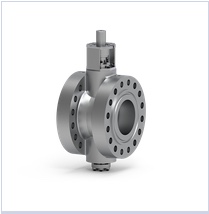07-09-2022
DORIS and Axens to jointly develop CCUS services
DORIS and Axens have entered in a partnership to jointly develop integrated Carbon Capture, Utilization and Storage (CCUS) services. The main objective of this collaboration is to provide consulting, engineering and EPCm services for CCUS projects based on Axens technologies.
The Memorandum of Understanding (MOU) signed between DORIS and Axens allows the partners to propose a unique solution to industrial CO2 emitters combining DORIS expertise in full engineering services together with Axens leading carbon capture technologies such as DMXTM and AdvAmineTM. This joint offer covers the full CO2 value chain from capture at the point of emission (fuel combustion, industrial processes...), up to the usage or permanent storage solutions, considering the midstream chain of transportation by pipeline or ship as well.
DORIS Head of Strategy for EAME APAC region Olivier Benyessaad said: “CCUS is one of the numerous solutions that will contribute to our industries decarbonization. Main challenge for a larger deployment is related to the total cost of ownership of the solution. With Axens technological know-how, we are now able to propose integrated and cost effective solutions for all our industrial clients who are looking at implementing CCUS solutions”
Axens Vice President Low Carbon Solutions & Gas Rachid Chennit declared that this partnership with DORIS “will allow Axens to offer a complete CCUS solution from CO2 capture up to the usage or storage, essential for the decarbonization of our industries and a low-carbon society. Axens will leverage on AdvAmineTM 60 years’ operating experience on natural gas sweetening to widely deploy its DMXTM breakthrough technology that remove CO2 from industrial flue gas. DORIS expertise in engineering combined with Axens technology know-how will bring a strong added-value to all industrials willing to reduce their CO2 emissions and this all along the lifetime of a project from feasibility stage to unit operation follow-up".
According to the Intergovernmental Panel on Climate Change (IPCC) and the International Energy Agency (IEA), CCS is a necessary technology to approach the goal of net-zero emissions. The global capture capacity was about 40 MtCO2 per year in 2021. The ongoing pipeline of projects forecasts 220 MtCO2 per year of global capture capacity in 2030, while the IEA’s Sustainable Development Scenario (SDS) is targeting around 900 Mt CO2 per year by 2030 and around 5,400 MtCO2 by 2050.
Sponsor:
News Category:
-
Axens completes expansion of Axens Catalyst Arabia Limited
The expansion of Axens Catalyst Arabia Limited (ACAL) comprises an additional capacity for Axens to manufacture Tail Gas Treatment Catalyst on the site. Axens completed ...
14-04-2025
-
Elyse Energy selects thyssenkrupp Uhde for Biomass-to-SAF project
BioTfueL® technology has been selected for the BioTJet project by Elyse Energy and its partners (Axens, Avril, IFPEN). This project will produce sustainable aviation ...
19-03-2025
-
Axens and SOREMA to provide advanced plastic recycling integrated solutions
Axens, a leading technology licensor in the field of plastics circular economy, and SOREMA, an international technology and equipment provider for sorting, cleaning and ...
03-03-2025
-
Three new Vegan® licenses for SAF and renewable diesel production
Leading energy players Galp, a major Portuguese multinational energy corporation, LOKEN, a Malaysian energy player developing one of the first renewable complex in South-East ...
08-01-2025
-
KBC awarded ERTC transition solution of the year
KBC (A Yokogawa Company) has been awarded the prestigious Transition Solution of the Year Award by the European Refining Technology Conference for its leadership in advancing ...
04-12-2024
-
Exploring chemical recycling and bio-based plastics production in refineries
How do we meet the growing demand for plastics? The global refining, gas, and petrochemical industries are under pressure to decarbonise and adopt sustainable practices ...
14-11-2024
-
KazMunayGaz and Axens extend collaboration
During the official visit of the President of the Republic of Kazakhstan, Kassym-Jomart Tokayev to France, JSC NC “KazMunayGaz” (KMG) and the international company ...
06-11-2024
-
Axens, IFPEN and JEPLAN announce commercial licensing of the Rewind® PET process
In line with the announcement made at the inauguration of a semi-industrial demonstration unit at Kitakyushu in Japan in October 2023, Axens, IFPEN and JEPLAN, partners ...
22-10-2024
-
Axens, has been awarded by Shell Deutschland GmbH the Engineering, Procurement and Fabrication contract to supply Electrical Tubular Heater for Shell’s Base Oil Distillation ...
12-09-2024
-
Quentin Debuisschert replaces Jean Sentenac at the head of Axens
After managing the Axens Group for 22 years, Jean Sentenac handed over to Quentin Debuisschert in June 2024. The handover took place after a transition period that allowed ...
25-06-2024

















